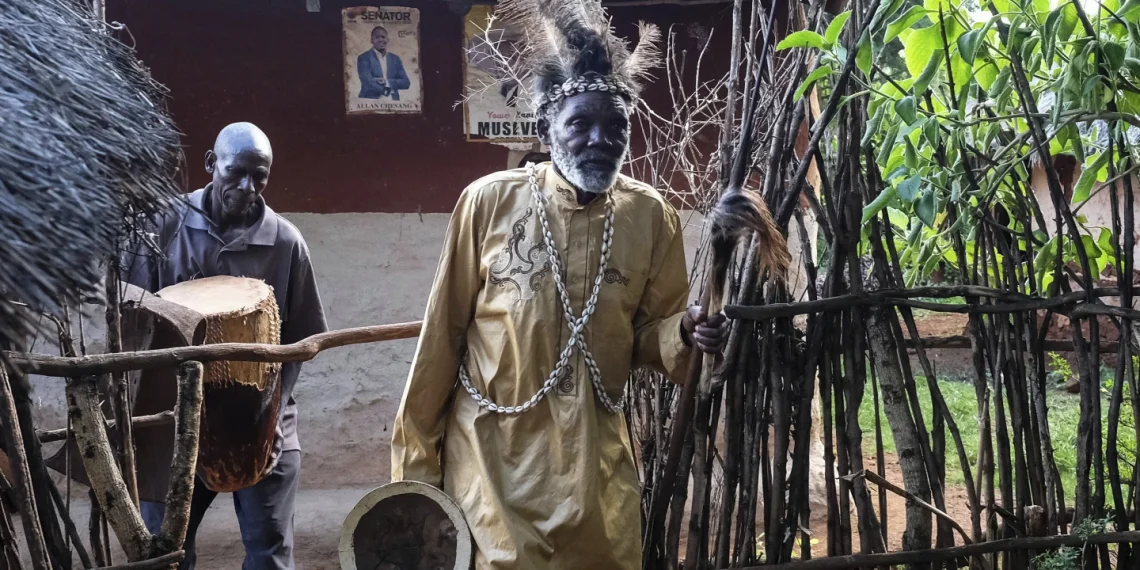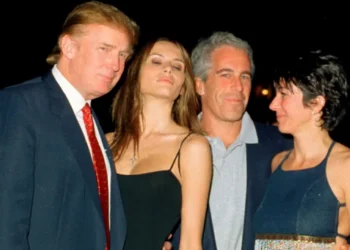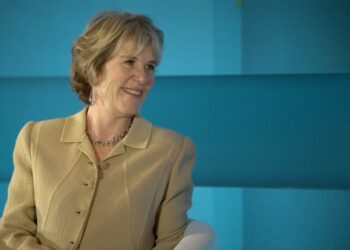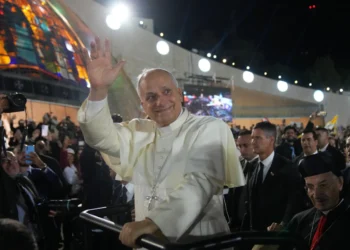MBALE (Realist English). When Wilson Watira, a parliamentary candidate in eastern Uganda, extended his hand to a rival at a funeral, the man refused. Instead, he folded a funeral program and offered that as a shielded gesture. “He’s just afraid of me,” Watira recalled. “Because I’m not afraid of him.”
In Uganda’s political arena, spiritual intimidation is as real as political rallies. While voters see campaign caravans, speeches and giveaways, many politicians quietly seek advantage through rituals, traditional healers, and what locals broadly label as witchcraft — a syncretic undercurrent of modern politics in East Africa.
“Once fear takes over the mind,” Watira said, “you start imagining dangers everywhere. That’s our biggest challenge.”
With general elections slated for January 2026, fears of spiritual attacks — real or perceived — are intensifying. Steven Masiga, a researcher and cultural leader in Mbale, told AP that many Ugandan politicians “allocate a percentage of campaign funds to traditional healers.” Some believe that “voters may change their mind, but the witch doctor never fails you.”
According to Masiga, one politician in the region even skinned a live goat during a ritual — and went on to win. Posters offering “spiritual protection and guaranteed victory” now appear on street poles in Kampala and provincial towns alike.
Uganda’s political spiritualism reflects broader dynamics across Africa. In Zambia, two men stand trial for allegedly plotting spiritual harm against President Hakainde Hichilema. In South Sudan, Vice President Riek Machar is believed by some followers to fulfill a century-old prophecy. In Kenya, recent protesters accused President William Ruto of casting a spell on the presidential compound to repel demonstrators.
Even Uganda’s long-ruling president, Yoweri Museveni, has acknowledged the role of spiritual traditions. Last year, he recalled leaping over a slaughtered chicken during the 1980s guerrilla war, describing it as a powerful ritual. He warned Christian leaders not to antagonize traditional healers: “We had a good relationship with them,” Museveni said.
Not everyone is willing to play along. Peace Khalayi, a Catholic candidate for Parliament, rejects calls from supporters to perform rituals. “You pretend to agree,” she says, “but you don’t actually show up.” Still, she admits, “The fear is there. That’s no lie.”
Traditional healer Rose Mukite, working from her domed shrine in Mbale, claims to serve clients from across Uganda — politicians among them. “I have many, many,” she said, preparing charms and chewing bark to ward off “calamities like arrest.” Not every ritual guarantees success, she warns: “Just like in a hospital — when death comes, it comes.”
As the 2026 race heats up, faith — whether in God, ancestors, or spirits — remains a powerful and sometimes unpredictable factor in Uganda’s political life.


















